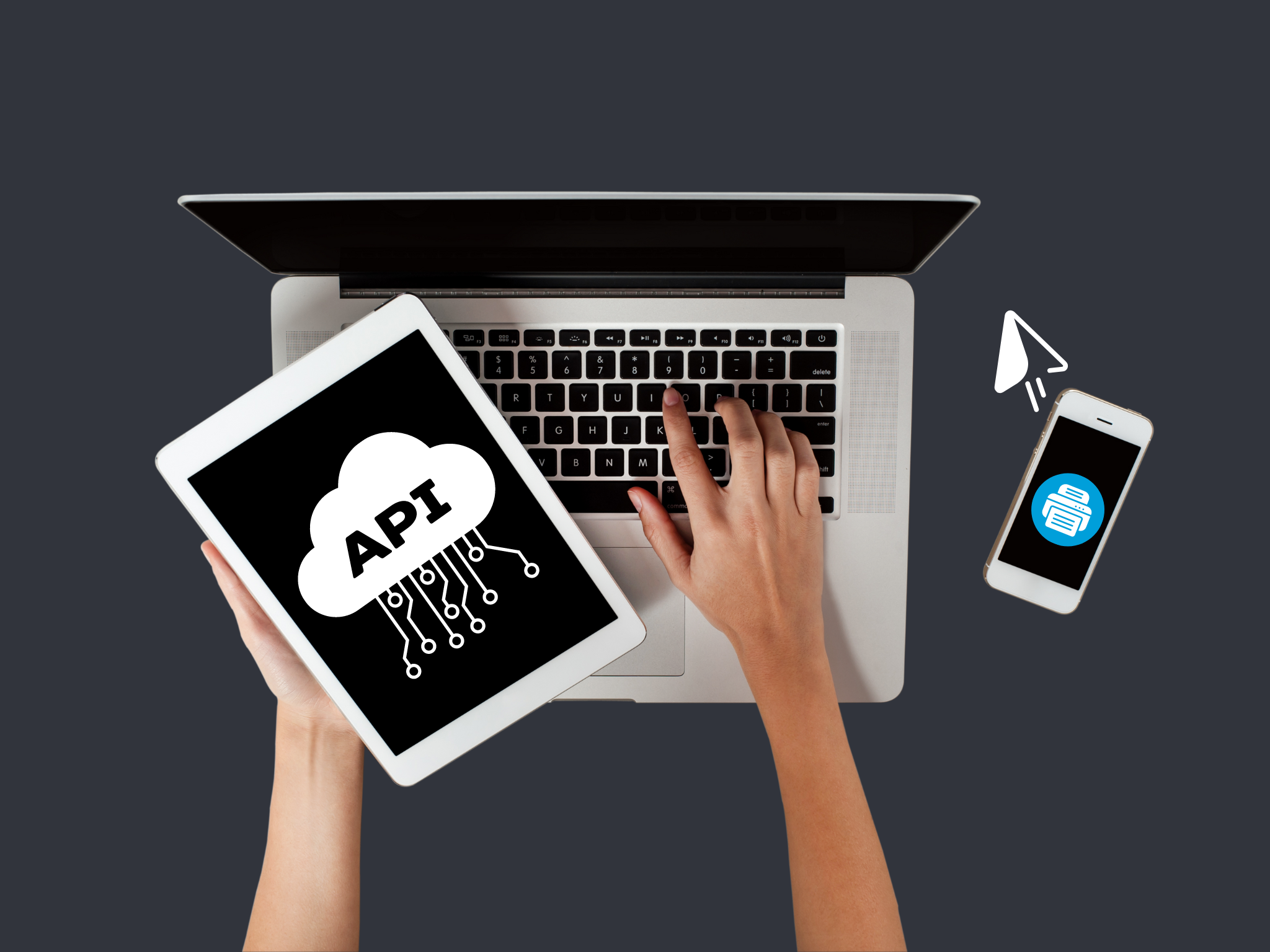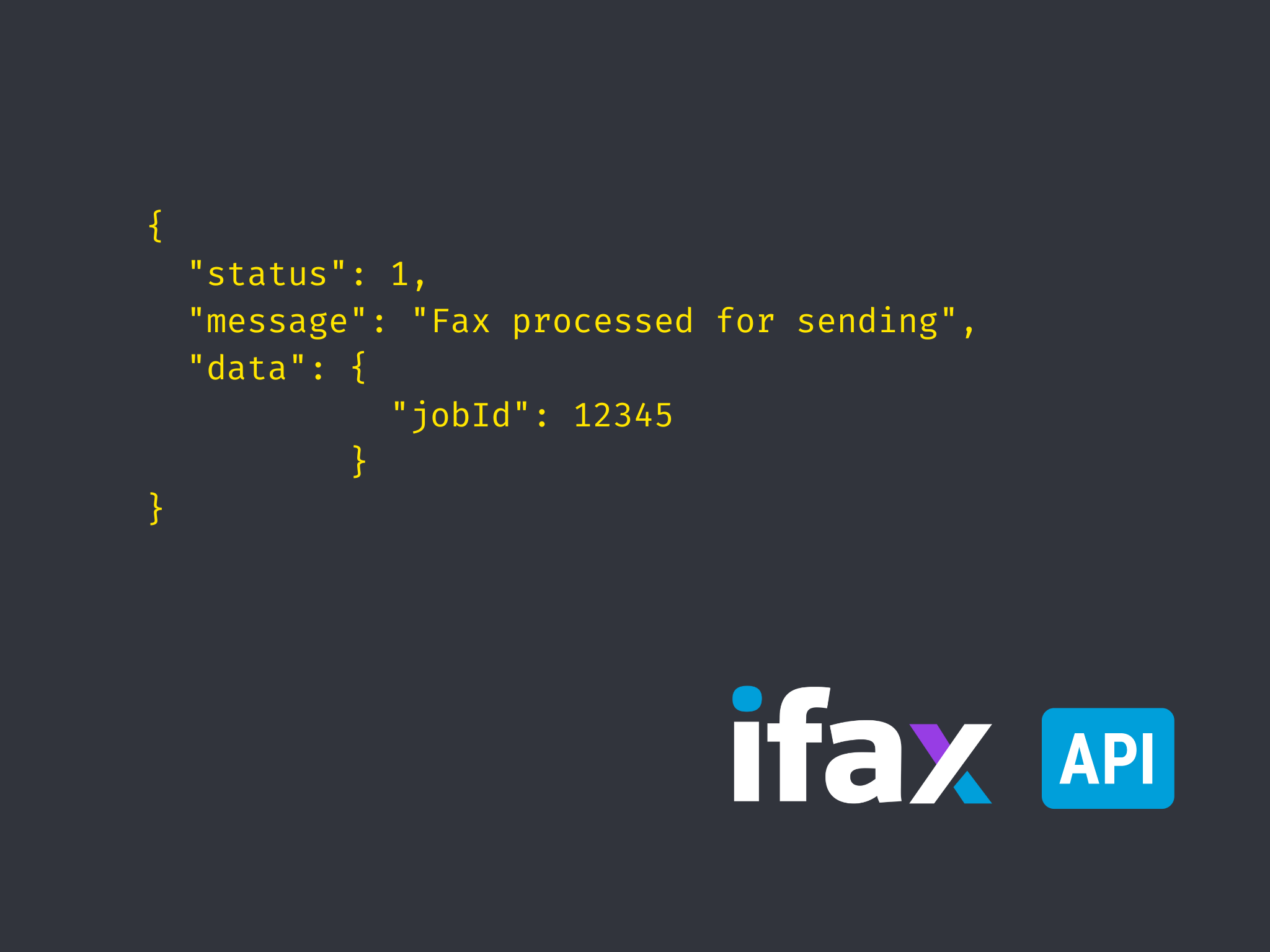Application Programming Interfaces (API) in faxing has revolutionized how businesses and organizations communicate. Besides providing a fast, secure, and convenient way to transfer data, APIs provide scalability and integration with existing systems. If your goal is to improve the efficiency of data exchange within your business, then leveraging this feature for faxing could be your best bet.
This post will explore the benefits of using a cloud fax API for sending faxes and how it can improve productivity by streamlining your communication processes.
Table of Contents

How Are APIs Used in Sending Faxes
An API refers to a set of rules and protocols allowing disparate systems and applications to communicate. It allows access to the functionality and data of another app or service, often via a network. A fitness app, for example, could pull a user’s health data from an external source. There’s no need to host the data within the fitness app itself.
As for sending faxes, an API makes it possible to integrate faxing capabilities into your business app, website, or software. It eliminates the need for a dedicated fax machine or modem. It lets you utilize your existing platform so you don’t have to switch back and forth between apps.
Similarly, API integrations can make sending faxes faster and easier as there is no need to transfer or copy information between different applications manually. There’s also the advantage of improved accuracy since the information is directly pulled from the source, eventually reducing the risk of errors caused by manual data entry.
Examples of Companies or Services That Use APIs for Faxing
The following are examples of businesses and industries that can benefit from using an API to send a fax.
Healthcare
API allows healthcare providers to send sensitive patient records quickly and securely. It’s an invaluable tool that helps facilitate better communication and collaboration between medical providers and healthcare organizations, leading to improved patient outcomes. It has also helped increase efficiency, as medical staff no longer have to wait for data transfers or dig through endless paper files to access the records they need.
Finance
Financial institutions use APIs to integrate with other systems securely. It allows for a more streamlined transfer of data, with the potential for cost savings due to its ability to automate manual processes. It also helps improve marketing and sales efforts by providing real-time insights into customer behavior and enabling the delivery of personalized, targeted content. Doing so ensures that customers receive a more engaging experience, which drives customer loyalty, satisfaction, and engagement.
E-commerce
E-commerce businesses can expand their reach and increase sales by using an API to send fax broadcasts, allowing them to gain a wider reach while minimizing the costs associated with traditional marketing. Furthermore, there is no need to invest in costly equipment to send out faxes in bulk. On top of this, APIs can provide real-time access to inventory data making it easier for customers to track the availability of products and place orders.
Legal
API faxing enables legal professionals to securely and quickly share critical documents, such as court orders, contracts, and deeds. Not only does this cut the cost and time associated with paper-based faxing, but it also ensures compliance with applicable legal regulations.
Integrating faxing into legal practice management software also streamlines workflows. It helps create a unified system that stores all data in a single, easily accessible cloud-based repository. This way, lawyers can work more efficiently and quickly gather all the documents needed for a particular case.
Logistics
Logistics services can benefit from sending a fax using API by streamlining communication and enhancing efficiency. Instead of spending hours sending and receiving faxes, companies can quickly connect with customers and make transactions through API integrations.
There is no need for a dedicated faxing app or a traditional fax machine to manage orders and shipments. You can fax directly from an existing logistics management system. It also makes accessing customer data from external sources easier, eventually speeding up the fulfillment procedures.

5 Advantages of Using an API for Faxing
Using API to send and receive fax offers several advantages, including:
- Convenience: Allow easy integration with other systems, such as EHRs and CRMs, improving overall efficiency and productivity.
- Automation: Eliminate the need to perform repetitive or complex processes and devote more time to other pressing problems requiring undivided attention.
- Scalability: Faxing using API supports growth by allowing businesses to expand and adapt to ever-changing demands.
- Flexibility: Send and receive faxes from internet-enabled devices and platforms, including computers, laptops, and mobile phones.
- Cost efficiency: Reduce costs associated with procuring new hardware and software, as faxing via API works with existing systems. No need for costly upgrades.

How to Use iFax API to Send Fax
To use the iFax API to send a fax from another software, you will need to do the following:
- Register for an iFax Professional account and obtain an API key.
- Following the official documentation, you must make an API call based on a specific HTTP method.
- Use the programming language and framework of your choice to write the request. You can set the format of the content either in JSON or Form-data. Make sure to include all required parameters for creating and sending a fax.
- Test your integration to ensure that everything is working correctly.
- Check the status list provided in the official documentation and take note of the possible responses during testing.
- As a general rule, the API call response should match the ones listed in the status list, including error messages, timeouts, retries, and failed deliveries.
- Once you are satisfied that the integration is working correctly, deploy the HTTP request. Refer to the complete guide here to understand how to configure your API to send faxes properly.
Note: If you need assistance setting up the API request, feel free to reach out to our support team via email or live chat.
Fax API Integration Made Easy
Effortlessly send and receive faxes directly within your on-premise or cloud-based applications. With iFax, you can automate your fax-related tasks and quickly implement a secure, compliant, and reliable faxing solution.
The best part? You don’t have to invest in extra hardware or worry about complex setups. Our developer-friendly API makes it easy to integrate with other software systems with just a few lines of code.
Integrate iFax into your software today to see the difference. Create an account for free, or contact our sales team to request a demo.







